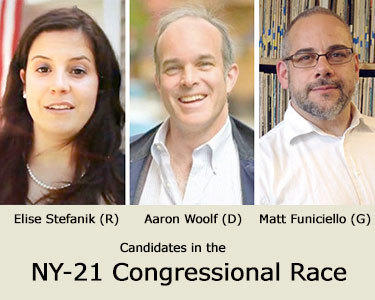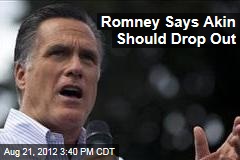Fun’s fun. Admittedly, it has been fun to watch Donald Trump ruining the field for sixteen or more other Republican candidates for the White House. He’s like a human-shaped cue ball. Knocked into the rack, he has sent minor and major candidates careening in all directions, colliding with each other and banging up against sides of the green baize table. All their careful game plans gone awry. Their carefully tailored appeals overwhelmed. Their thoughtfully crafted pathways to attention in a crowded field, demolished by the Trump campaign, if you call it that. More oafish and media-baiting than Chris Christie, more openly immigrant-baiting than Scott Walker, more plugged in than Jeb Bush, more ‘centrist’ or unpredictable on some individual issues than any governor, more woman-baiting than any other candidate–Trump has exploded the usual paths to celebrity for other Republicans. He’s stomping on their dog whistles. Red meat? Next to Trump, they look more like pink SweeTARTS®.
Here they are
Couldn’t have happened to a nicer bunch of people. As said, the spectacle is fun to watch. Serves them right.
Still, given that some GOP voters out there clearly hope that Trump will swing down in a golden chariot from his Tower, and scoop them up from whatever financial doldrums they’re in, it is only fair to point out that deep questions about Trump’s own finances remain open.
Is Trump distracting attention from something?
A few facts are clear from Donald Trump’s 92-page financial disclosure filing to the Federal Election Commission (FEC). One is that Trump is carrying a heavy debt load. He owes four creditors “Over $50,000,000” apiece; his loans total $215 million-plus to $400 million-plus; and at least $25 million to $125 million in loans come due in the next four years. Trump, who has declared bankruptcy four times, has taken on more than $130 million of the current debt since 2012. Trump has claimed a huge income on air, and also claims to be willing to spend $1 billion on the 2016 election, if that’s what it takes to win, but the debt load is still sizeable from any perspective.
The FEC filing also shows that few people who are not Trump himself employ Trump, or pay him for work. His occupational income seems to be largely speaker fees or fees for managing properties now partly owned by others; his pay for managing his own companies is not shown. The financial disclosure form also shows that Trump has sold or liquidated substantial assets in value stocks and in bank funds from the beginning of 2014 to now, the period covered by the filing.
It is not clear whether the assets were sold to finance Trump’s White House bid or for other reasons. The asset sales generated handsome capital gains; his own more volatile companies and properties–the corporations and LLCs with Trump as officer or member, and the famous hotels and resorts, etc., bearing the Trump name–were not sold. The FEC filing also does not clarify Trump’s net worth. Not a balance sheet or a budget, it does not clarify the proportion of income to outlay. Trump’s campaign and press office, contacted by phone and email on August 13, have not responded to questions.
Trump floated one of his preliminary statements about running for president back in 2011, with sources quoted by Politico putting out word that he was worth $7 billion. The net worth figure was disputed even at the time: “The eye-popping figure is far higher than the $2.7 billion that Forbes Magazine valued his net worth to be last month.” Estimates of Mr. Trump’s net worth have fluctuated, with Bloomberg News and the New York Times among others expressing skepticism when Trump upped his claim to $10 billion. Trump’s own estimates have also fluctuated, although Trump’s much-quoted emphasis on his wealth–“I’m really rich“–remains a constant. Since launching his campaign on June 16, Trump has reiterated the brash statements about his wealth, seemingly at every opportunity.
One statement not being recycled, however, is the unnamed 2011 sources’ claim that Trump’s financial disclosures would indicate “more than $250 million of cash, and very little debt. He is very, very liquid.”
The man at the moment
As of 2015, in actuality, Trump’s financial disclosure filing shows massive debt and undefined liquidity. “Part 8: Liabilities” (page 47) lists fifteen debts. Two are Merrill Lynch mortgages totaling less than $1 million. The remaining thirteen are gargantuan. Trump’s filing shows “Over $50,000,000” owed to Ladder Capital Finance LLC; Deutsche Bank Trust Company Americas; Chicago Unit Acquisition LLC; and Capital One, although the Capital One deal has an asterisk showing it refinanced with Ladder Capital. Trump also owes another $25 million to $50 million to Deutsche Bank, due in 2024, and $5 million to $25 million to Deutsche Bank due in 2015. He also owes $5 million to $25 million apiece to seven other creditors including Bank of New York Mellon, Ladder Capital, Royal Bank America, and Amboy Bank. Two of the loans come due in 2015, one in 2016, two in 2017, and three in 2019. Setting up a blind trust for a Trump term in the White House would be a challenge.
One question put to the Trump campaign is whether the debts are in any way problematic. Does Trump expect to pay them all? If so, will he resolve them before entering the White House, should he win? If not, how would they be handled?
Meanwhile, one of Trump’s “Over $50,000,000” notes comes from an entity owned 100% by Trump himself (page A3), called Chicago Unit Acquisition LLC. Chicago Unit Acquisition generates income (page 13) listed as “None (or less than $201).” This Trump-to-Trump loan is Trump’s highest-interest big loan, at Prime + 5%. No deadline year is given; the “Term” column is filled in with the phrase “Springing loan.”
Other questions put to Trump concern this springing loan. Not an MBA myself, and not being Barry Ritholtz, I had to look up the phrase. A “springing guaranty” is a guarantee that takes effect when something bad happens, like bankruptcy. (This arrangement is also called a “bad-boy guarantee.”) According to the asset wizards at Andrews Kurth, in a springing guarantee, “the borrower is required to fund an escrow account serving as additional security for the loan.” This way, if something bad happens–“say a key tenant decides not to renew its lease”–“when funded, the borrower has more skin in the game to offset drops in value.”
One way to keep the feds off your back? Run for the White House. What better position could there be, from which to argue that an investigation is ‘politically motivated’? Ask Hillary Clinton.
On page 13, Trump lists the value of “Chicago Unit Acquisition LLC” at $1,001 to $15,000 (thousands, not millions). So he owes the LLC at least 3,333 times its value, or he owes it to himself, or to a tiny LLC owned wholly by himself, to fund an escrow account, in case things go wrong? If he owes it to himself, is this enforceable? Will the loan be paid off? Does it have to be? If listed as a “springing loan,” is the escrow requirement enforceable, when the creditor is owned by the debtor? Whatever this dizzying arrangement means, the FEC filing makes clear that Trump owes somewhere in the neighborhood of half a billion dollars. Depending on how much over $50 million the phrase “Over $50,000,000” means, he could owe much more. Trump himself has spoken on the campaign trail in favor of transparency. It would be nice to have the debts elucidated. Trump has repeatedly said that candidate Jeb Bush is a “puppet” for donors who give him millions. Point taken, but what about a candidate who has been lent millions, or hundreds of millions?
As listed in “Part 6: Other Assets and Income,” substantial assets have been liquidated or sold since the beginning of 2014, in stocks and funds. These sales did not include the 501 corporations or LLCs for which Trump lists himself as director, president or member. The sales were of Baron funds, Paulson funds, and DJIA major companies. Recently, Trump has sold assets held in twelve of eighteen bank funds (page 35). Amounts are given in ranges, and some capital gains are combined with interest and dividends, but the sales total falls somewhere between $2 million and $15 million. The filing does not make clear how much of the fund assets remain.
Trump has also sold company stocks from several brokerage accounts, although he still owns stock in at least 190 companies. Oppenheimer and one Deutsche Asset brokerage account seem to be the fullest; a different Deutsche Asset account and a JP Morgan account seem to be the emptiest. Many remaining company stocks are listed as producing no income, “or less than $201.” Meanwhile, the JP Morgan brokerage account (pages 44-45) shows stock in forty companies from Amazon to Yahoo effectively cleaned out, their remaining value listed as “None (or less than $1,001).” Stocks sold include several on the current Dow Jones Industrial Average–Apple, Boeing, Caterpillar, Exxon Mobil, Johnson & Johnson, Procter & Gamble. The “Over $5,000,000” realized from Bank of America stock appears to be Trump’s best sale or liquidation. Nobody’s wrong all the time. B of A is also one of the largest donors to Hillary Clinton and Jeb Bush.
If these sales were connected to the White House campaign, there may be more sales, depending on how much the campaign costs in coming months. (“$1 billion”?) Again, the ranges given on the standardized form do not show much remains viable for further sales and assets liquidation.
Pageant winners
In the past, Trump’s flamboyant business career involved buying the Miss USA and Miss Universe beauty pageants, which deflected media attention from his real estate troubles. He is now putting himself on a pageant stage. How serious the run is remains to be seen, but the effectiveness of the deflection is undeniable. Trump has brashly and repeatedly emphasized how much he has given to politicians–“almost everybody on this stage,” he said famously (and falsely) in the August 6 GOP debate. The emphasis on his giving deflects attention from how little he has received, usually a benchmark of candidate success. (“I don’t care”; “I don’t want their money.”) The campaign website has a button for donating, of course. Data from the Center for Responsive Politics show donors to Donald Trump to be few and far between. Similarly, Trump’s brash emphasis on his own companies deflects attention from the fact that he is not hired as CEO and chair of other people’s large companies. His brash emphasis on his wealth–in general terms–deflects attention from his bankruptcies, his volatility, and the lack of specific disclosures on income and net worth.
Ironically, this is the one GOP campaign getting high marks for truthfulness. Donald Trump, who with one of his lawyers concocted the line that a woman attorney wanted to breast-pump in front of him, is the only Republican getting credit for telling it like it is. Media commentators are paralleling Trump to Bernie Sanders–both ‘outsiders’. Actually, Trump is an insider, as his financial disclosures make clear.
The man himself
A better parallel would be to the Stay Puft Marshmallow Man (with thanks, or apologies, to the late Harold Ramis et al. at Ghostbusters). So long as he can stay on his feet and bully, he can roll through the avenues of New York. Impervious to loss, shame, or bankruptcy, buoyed up (in GOP opinion polls) by pestilential behavior, he stays afloat.
Next up: Hillary Clinton’s emails





























